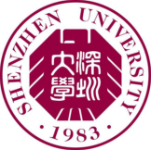The consortium
 Møreforsking www.moreforsk.no
Møreforsking www.moreforsk.no
Møreforsking (MF) is the largest non-profit regional institute in Norway, with offices in Ålesund, Molde and Kristiansund. The institute conduct applied research on topics related to marine- and social sciences, transport economy and logistics. We contribute to sustainable resource management, innovation and value creation through research and knowledge production in collaboration with industrial clusters in the region, public sector, as well as national and international research institutions. The institute is interdisciplinary and supply research reflecting both international, national and regional priority areas.
Møreforsking possess various laboratory facilities, including laboratory for chemical and molecular analysis, a facility for live marine organisms and a process laboratory for conservation, storage and primary processing. Complete lab-facilities for characterization and proximate chemical composition of marine raw-materials, protein/peptide profiling by UPLC, combined with large scale fractionation by FPLC for purification of bioactive proteins, peptides or carbohydrates, physicochemical and microbiology analysis.
 Shenzhen University en.szu.edu.cn
Shenzhen University en.szu.edu.cn
Shenzhen University (SZU) established in 1983, is committed to excellence in teaching, research and social service. Sticking to the motto of “self-reliance, self-discipline, self-improvement”, the University is dedicated to serving the Shenzhen Special Economic Zone (SEZ), demonstrating China’s reform and opening up and pioneering change in higher education.
SZU offers a wide array of undergraduate and graduate programs and provides students with an interdisciplinary and inclusive multicultural learning environment. Students in SZU enjoy the plenty resources and facilities of both the SEZ and the University, pursue academic excellence and discover new interests and opportunities in a fast-changing era.
SZU is an integral part of the SEZ, a thriving technology and innovation hub. With four campuses in Yuehai, Canghai, Lihu and Luohu, the University vigorously conducts leading researches in various fields and collaborates with high-tech enterprises in the community for technology transfer. SZU strives to provide a high-quality and effective education and develop in each SZU member the ability and passion to innovate and contribute to social progress and development, and encourages talented young people to start entrepreneurship in SZU. Our alumni including Tencent have founded dozens of innovative companies with significant influence.
SZU is accelerating its pace toward internationalization, providing a variety of global learning opportunities. The University has established partnerships with numbers of overseas universities to offer exceptional exchange programs, joint degree programs, research collaborations, and a variety of other forms of collaborations with international partners.
 Institute of Hydrobiology, Chinese Academy of Sciences english.ihb.cas.cn
Institute of Hydrobiology, Chinese Academy of Sciences english.ihb.cas.cn
The Institute of Hydrobiology (IHB) of the Chinese Academy of Sciences (CAS) is China’s only comprehensive academic research institution specializing in the studies of life processes of inland aquatic organisms, ecological environment protection and utilization of biological resources. It was evolved from Natural History Museum of Academia Sinica founded in Nanjing in 1930, and was reorganized in 1934 as Institute of Zoology and Botany of Academia Sinica. The Institute was divided into two institutes under Academia Sinica in 1944 - Institute of Zoology and Institute of Botany. In 1950, after the establishment of the CAS, IHB was formed by merging the Institute of Zoology of Academia Sinica, Institute of Zoology of National Academy of Peiping, and Division of Phycology at Institute of Botany of Academia Sinica. It was then located in Shanghai and moved to settle in Wuhan in 1954. In 2011, IHB entered into the pilot project of the CAS Innovation 2020, a program aims to further promote innovation and turn scientific discoveries into technologies that power economic growth and sustainable development.